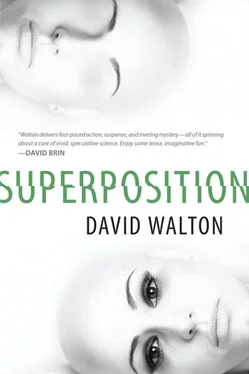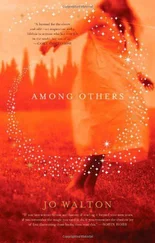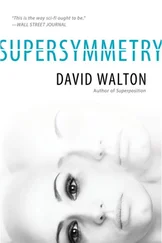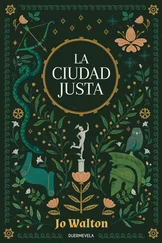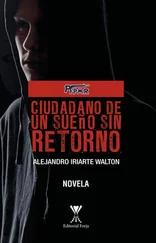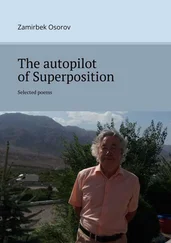Of course, there were two more cops from the other car. One aimed his weapon and shouted at me not to move. I turned to run anyway, and the cop fired. I had expected a few more warnings before he actually fired in a suburban neighborhood, and I threw myself to the ground. I heard more shouting and another shot, and I risked lifting my head a fraction to look.
The varcolac was tearing the police car apart. The cops were firing at it, now, and as I watched the varcolac split itself into two, then three, then four duplicate versions of itself, each with same clumsy, conglomerate look, as if put together with written instructions by someone who had never actually seen a person. They pulled the metal frame away like it was tissue paper. The cops fired shot after shot into them with no effect.
I jumped to my feet and ran back toward my own house, climbing the fence again and racing across the yard. I climbed into Brian’s car, turned the key, and pulled out over the grass, across my neighbors’ yard, and into the street. I felt a pang of guilt for leaving the policemen to fend for themselves, but really, what could I do for them? The best course of action was escape. It was the only way I had any hope of finding out what these things really were and how to stop them from killing anyone else.
Once I was a block away, I pulled out my phone and checked the number to see who had called with such good timing. It was Elena’s cell number. It gave me a rush of adrenaline to see it, before I realized that Alessandra must have gotten a hold of Elena’s phone and called to tell me where she was. I started dialing back, but before I finished, I spotted her and Marek not far ahead. They climbed into the car. Alessandra’s eyes were wild.
I looked at her face, and suddenly all the horror of the last half hour came crashing in on me. Elena, Claire, Sean, all dead. I grabbed her hand and squeezed it, tight. She started to cry.
“We’re going to find a safe place to go,” I said. “I won’t leave you. I promise.”
We drove. After ten minutes with no flashing lights in my mirrors, my heart rate slowed. I figured the varcolac and its duplicates must have killed the cops. I wasn’t glad about it, but it gave us a chance to get away.
There was only one person I could turn to now, though I hated to ask him: my Uncle Colin. I navigated back roads, staying off the highways, driving automatically. I was boiling with rage. The dead faces of my wife and children kept floating in front of my eyes. If Brian had been alive, I would have gladly killed him. I wanted to kill him, to take his letter and all his selfish foolishness and shove it down his throat until he choked.
I wanted it all to be his fault, but I couldn’t help thinking that it was my fault, too. I had failed them. I should have been there. I should have stayed at home and protected them instead of chasing after Brian. After a while, I just wanted to shut down, to stop thinking altogether. We approached an overpass, and I wondered what it would be like to just step on the gas and plow headfirst into the concrete wall.
But I couldn’t. I still had a daughter, and she needed me. She would need my comfort, but first, she needed me to make her safe. I looked in the rearview mirror at Alessandra, now wrapped in the brown blanket and staring silently out the window. She was all I had now.
DOWN-SPIN
“The People call Officer Moses Carter to the stand,” Haviland said.
Carter was a light-skinned man with African features and a missing ear, probably in his late forties. He took the stand at a slow, deliberate pace. I got the impression that his lack of speed wasn’t illness or injury related; he was just an unhurried man.
“Mr. Carter, can you please tell the court what you saw when you arrived at 58 Woodview Lane on December third?” Haviland asked.
Carter had a deep voice. “I saw Mr. Kelley running out of his house.”
“For the record, do you see Mr. Kelley in the courtroom today?”
He nodded in my direction. “That man at the other table right there.”
“Let the court records show that the witness identified the defendant, Jacob Kelley. Mr. Carter, can you tell us what happened next?”
“I pulled my cruiser in front of the driveway, to block any cars from getting out. My partner and I got out and approached Mr. Kelley.”
“Were your guns drawn?”
“No sir, but we were ready to draw them at need.”
“Why?”
“We were there to arrest him for murder,” Carter said in the same measured way. “He comes running out of his front door, looking crazed, of course we’re going to be ready.”
“So what happened?”
“We tell him to put his hands on his head, which he does. My partner keeps ready with his weapon, and I take out my handcuffs. I tell him we’re arresting him and read him his rights, and he lets me put the cuffs on, nice and easy. He has a gun in his pocket, which I take away from him, and all the while, he’s talking crazy about how his wife and kids are dead. We figure, he shot the guy in New Jersey, and now he’s come home and popped the family, too. So the other crew holds him, and I go inside and check it out.”
“And what did you find?”
Carter shrugged. “Nothing. No bodies, no blood. I went back out and asked him where he stashed the bodies, and he says his wife was right inside the door, and how could I have missed her? So we figure he’s nuts, and we book him and take him in.”
I listened impassively, trying not to show my annoyance. If only I had run out the back door when the varcolac came for me instead of the front, I would have gotten away. I wouldn’t be sitting here, day after day, listening to all these people accuse me of something I never did.
“Did he say anything in the car on the way to the station?” Haviland asked.
Carter nodded. “Yes, he did.”
“And did you advise him that he did not have to speak without the presence of a lawyer, and that anything he said could be used against him in court?”
“I did.”
“And he chose to speak anyway?”
“Yes.”
“And what did he say?”
“He said, ‘This is all Brian’s fault.’”
“Did he elaborate as to whether he was talking about Brian Vanderhall or some other Brian?”
“No sir, he did not.”
UP-SPIN
Colin’s life had been turned upside down by Uncle Sean’s violent death, just as mine had, though in a very different way. Instead of heading off to college, Colin had gotten meaner, more aggressive, more likely to kick an opponent when he was down. The bruiser who killed Uncle Sean in the ring eventually turned up dead in an alley. Colin told me he wasn’t involved, but to this day I don’t know if I believe him. Three days after I started college, though, he was busted for illegal possession of a firearm and spent a year in the pen.
The day he got out of prison, a bullet to the knee ended his boxing career forever. The details of how it happened were murky. He called me at MIT and told me he’d found Jesus and was turning his life around and leaving boxing behind. I asked him how that was possible, knowing that the underground boxing rings didn’t easily let their boxers go, and he told me about his knee. That was twenty years ago, and I still don’t know if he pulled the trigger himself.
Colin never left South Philadelphia. I took Passyunk Avenue to get to his place, past the rows of gentlemen’s clubs and adult bookstores that in the bright of the day were empty and dark. I’d read an article recently that claimed that, according to the author’s calculations, the sexual exploitation industry had surpassed the oil and gas industry as the largest grossing business in the world. In this part of town, it certainly looked like it, though of course most such business was conducted across the net and included men of every level of education and culture. Here on the street, there were just no pretensions.
Читать дальше
